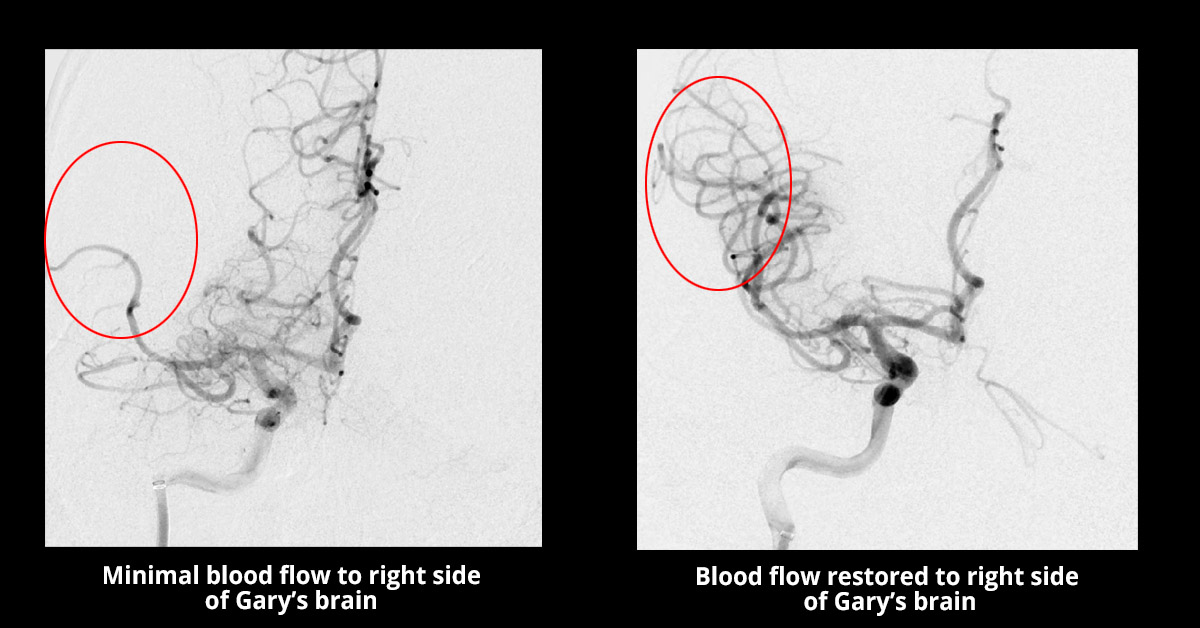Gary Keshena didn’t feel right after cutting his grass one afternoon last autumn.
He felt very fatigued.
He was sweating, out of breath and, according to his sister, “didn’t look very good.”
He didn’t realize it at the time, but he was slumped over his kitchen table when his sister found him, he says.
Still, Keshena, who’s in his late 60s, thought he was all right.
“My sister was temporarily staying with us … fortunately she didn’t listen to me,” Keshena says.
His sister ran to get the neighbor, a military veteran, who immediately recognized that Keshena was having a stroke. They called 911 immediately.
Keshena’s memory is spotty about the next several minutes, but he remembers the emergency medical team asking about administering a clot-busting medication and if he could move parts of his left side.
Keshena was driven directly to Aurora BayCare Medical Center in Green Bay, a drive that is only 2 minutes from his house.
Dr. Gerald Eckardt, a BayCare Clinic neurosurgeon, and his team were notified of Keshena’s impending arrival.
Brain scans showed a significant blockage on the right side of Keshena’s brain.

He was rushed to surgery where Dr. Eckardt was able to remove the clot and restore blood flow to his brain.
“From my understanding, the longer you wait the longer blood is not going to these vital places and you will suffer physical damage and more,” Keshena says.
Thanks to the quick action of everybody involved, including Dr. Eckardt and his care team, Keshena has no lasting effects from his stroke.
Keshena stayed in the hospital for about five days after surgery but regained the feeling and use of his limbs almost immediately. He lives independently with his wife, Noreen and has mostly returned to life as normal, he says.
“I can’t articulate the full meaning of still being alive to tell you the truth,” Keshena says. “I know how lucky I am, and I owe it to my sister, my neighbor and everybody that was along the chain. I’m fortunate. Dr. Eckardt and his crew? I’m amazed. This guy is brilliant,” he says.